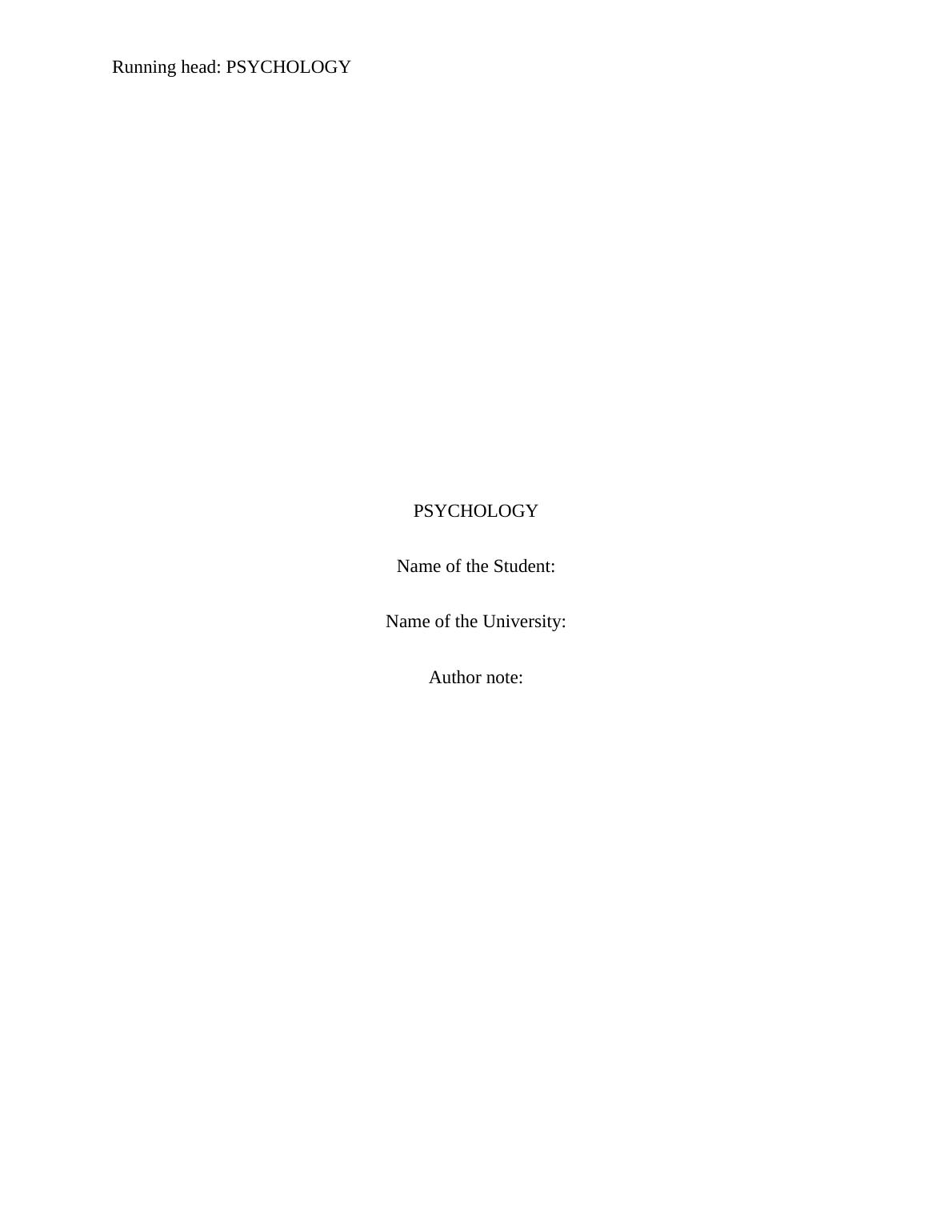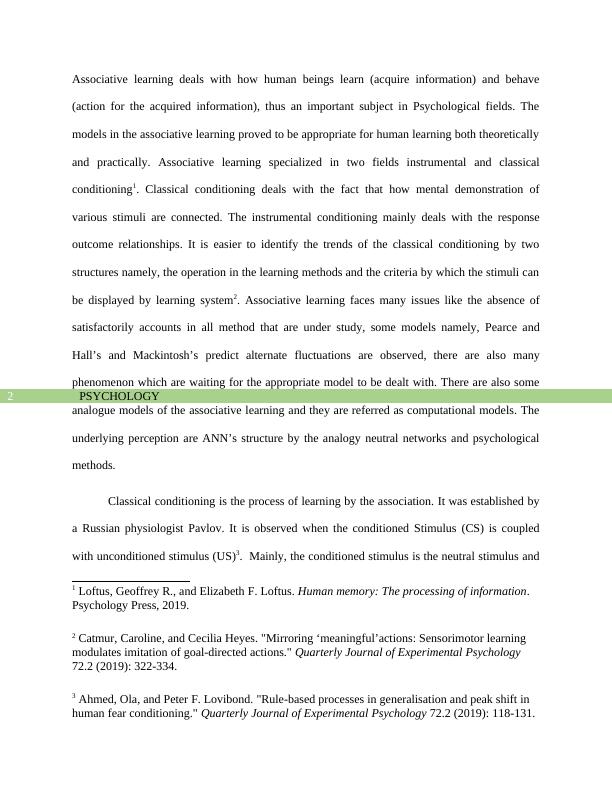Associative Learning in Psychology
5 Pages1008 Words84 Views
Added on 2023-01-10
About This Document
This document discusses the concept of associative learning in psychology, focusing on classical conditioning and instrumental conditioning. It explores the theories and models of associative learning and their practical applications.
Associative Learning in Psychology
Added on 2023-01-10
ShareRelated Documents
End of preview
Want to access all the pages? Upload your documents or become a member.
Behavioral Perspective Assignment
|5
|657
|139
Introduction to Psychology Theory 2022
|10
|2712
|26
Introduction to Psychology: Learning, Classical Conditioning, Operant Conditioning, and Social Learning
|9
|1819
|188
The unconditional stimulus the dog’s
|4
|430
|24
Learning Concepts Classical Molding
|3
|1171
|32
Operant and Classical Conditioning Theories in Psychology
|4
|726
|410


